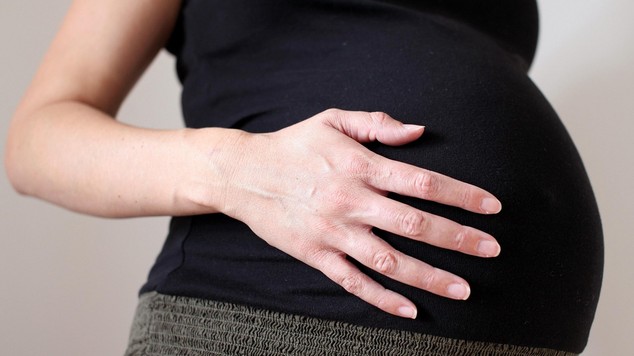Many women 'worried about missing out on motherhood'
Women are not "sleepwalking" into infertility, with many worried about missing out on the chance of having children, according to a new report.
Those under 40 are waiting to start a family due to the desire for their own home, financial stability and the right relationship, t he study, from the British Pregnancy Advisory Service (Bpas), found.
Women also want to be able to combine careers and motherhood, but are worried about finding the right childcare.

Many women are worried about missing out on the chance of having children, according to a new report.
Bpas surveyed more than 1,000 women aged between 20 and 40 who planned on having children, or who had not ruled out doing so.
Nine out of 10 (89%) were aware that the risks of pregnancy increased with age, and many were worried they were running out of time to have children.
This included a third (32%) of women aged 25 to 29, and 12% of the youngest women polled, aged 20 to 24.
The three most important factors for starting a family were being in the right relationship (cited by 82% of women), having financial security (77%) and owning their own home (40%).
Among those not planning on starting families soon, 50% said concerns about the costs of raising a child were also a factor.
Some 70% of women said they thought that combining work with childcare would be difficult, with 62% supporting affordable childcare and 50% the need for flexible working.
Fewer than one in 10 of those polled said the fact that IVF was available made them less concerned about delaying having children.
The report, Becoming a mother - understanding women's choices today, said the best evidence shows that more than 80% of women aged 35 to 39 having regular sex will become pregnant within a year.
More than one in eight women starting their families are aged 35 and over.
Clare Murphy, director of external affairs at Bpas, said of the new report: "The rise in the age of first-time motherhood reflects so many positive developments in women's lives - access to higher education, the ability to progress in a chosen career, all backed up by being able to control their fertility through contraception and abortion.
"These gains should be celebrated. People take the decision to have a child extremely seriously indeed, and for the majority of women, finding the right person to do that with and ensuring that a child is being brought into a situation of financial stability is what matters most."
She said the risks associated with getting pregnant in later years must not be " overstated".
And she said for those women who did want to start their families earlier, policies to support affordable childcare and housing would make a difference.
"Rather than continually warning women about the risks of older motherhood, it would be more productive to push for policy measures that enable women to better combine paid work and motherhood, as many clearly want to do, while ensuring the healthcare services are in place to support the needs of those who wish to or need to wait," she added.
The Bpas study found that 79% of women feel the responsibilities of caring for children still largely fall to women .
It comes after it emerged a fertility specialist has written to the Education Secretary, Nicky Morgan, saying schoolgirls should be taught about the dangers of delaying motherhood.
In the letter, seen by The Mail on Sunday, consultant gynaecologist Professor Geeta Nargund wrote: "I have witnessed all too often the shock and agony on the faces of women who realise they have left it too late to start a family.
"For so many, this news comes as a genuine surprise and the sense of devastation and regret can be overwhelming."





























































































































































































